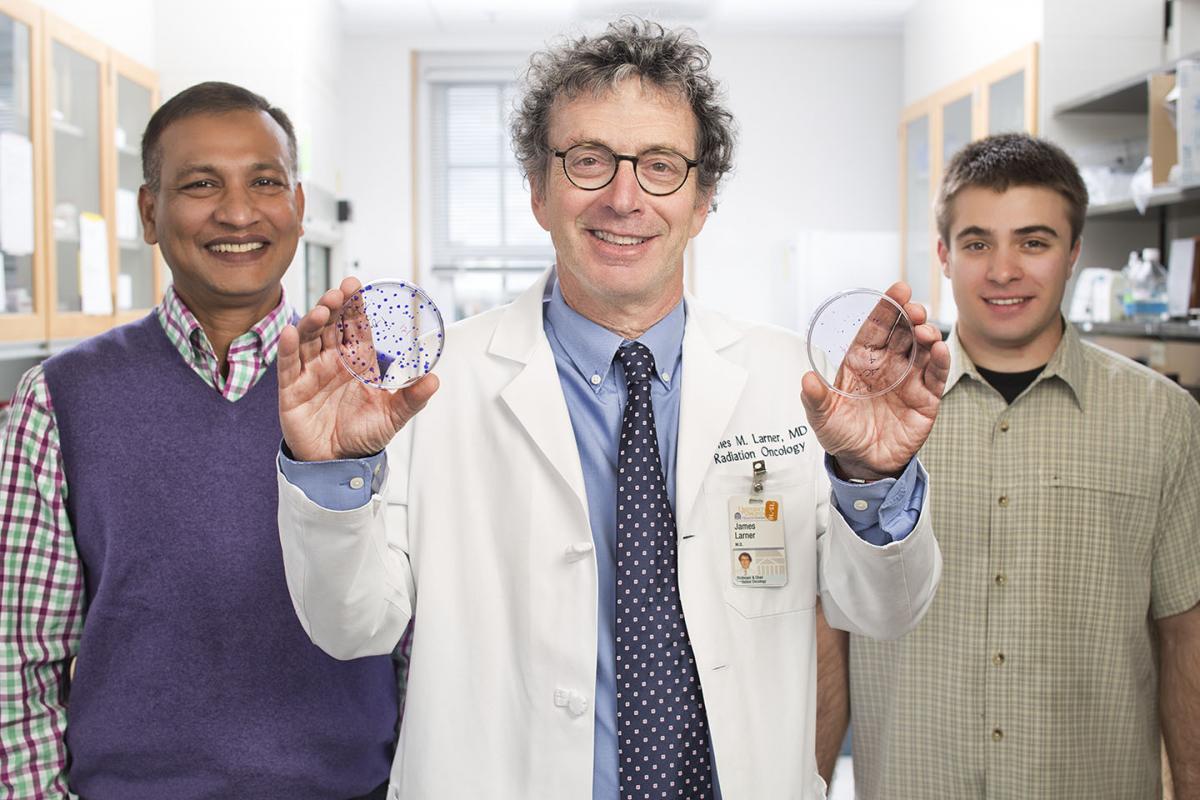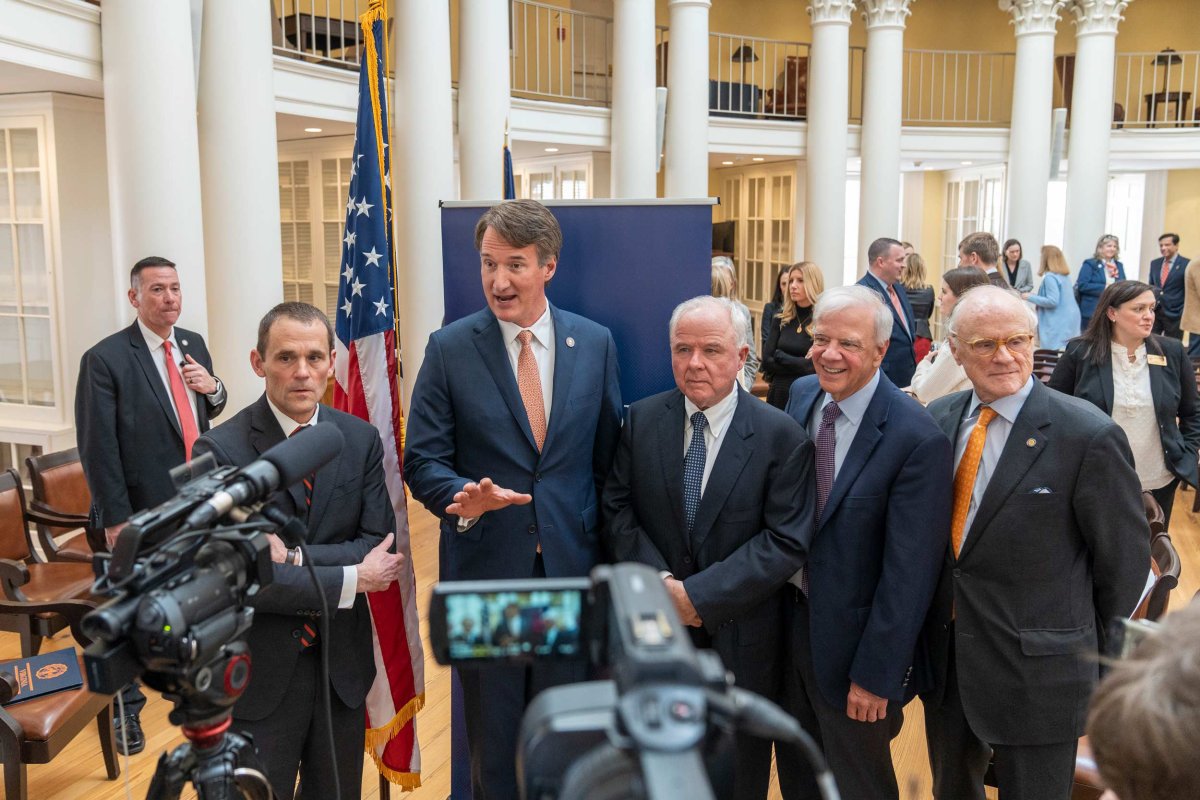Building a Pipeline from Discovery to New Models of Care
Those who know Charles Burnett III by his passion for fast boats and antique military vehicles may be surprised by his latest investment. His $1 million gift for prostate cancer research, however, may give the self-styled businessman and philanthropist his best return ever.
The second leading cause of cancer-related deaths among U.S. men, prostate cancer is slow-growing but persistent. Scientists know that androgen receptors, cells in the prostate that are activated by the male hormone androgen (also called testosterone), play a critical role in the onset and progression of prostate cancer. Current treatments focus on depleting or blocking androgens, which ultimately fails, since the cancer finds other pathways for activating the androgen receptor.
James Larner, MD (MED ’80), professor and chair of radiation oncology at UVA, focuses his research on a different approach. His team looks at ways to degrade androgen receptors.
“If we can target players in pathway to selectively promote degradation of the androgen receptor, we can control the growth of prostate cancer,” says Larner. “This is a novel approach of targeting the pathway, rather than trying to block androgen receptors.”
Larner’s idea has huge potential, but it’s complex and still in the early stages of investigation. Unfortunately, the big federal grant funders, like the National Institutes of Health and the National Cancer Institute, rarely fund early-phase research, focusing their resources on well-established concepts. That’s where individuals like Burnett come in.
“Early-stage funding is essential to spawn new ideas and collaborations,” says Larner. “Support for this initial exploratory phase will give us the information we need to proceed toward major grant funding, and, eventually, create a pipeline to clinical trials. We need individuals like Charles Burnett—forward-thinkers who like to ‘go deep’ and fund new ideas, people who are willing to think big and take risks that bring us closer to new treatments and cures for prostate cancer.”
The two men’s shared commitment to this research developed when Larner gained Burnett’s trust and respect while caring for his mother. It was that care, along with a keen interest in understanding the underlying reasons why therapies succeed or fail, the “going deep,” that led to Burnett’s personal investment.
Larner’s research is part of a growing expertise in prostate cancer at UVA—and Burnett’s support is mirrored by a number of others, including the estate of Paul Mellon. Currently, multi-disciplinary teams of UVA researchers are working toward innovative ways to treat and slow the progress of prostate cancer.
“We have assembled a group of ambitious and knowledgeable investigators who collaborate in advancing new concepts in prostate cancer research,” notes UVA Cancer Center Director Tom Loughran, Jr., MD. “Together, these exceptional physicians and scientists, when supported by generous partners like Charles Burnett, will change forever how we manage prostate cancer.”




